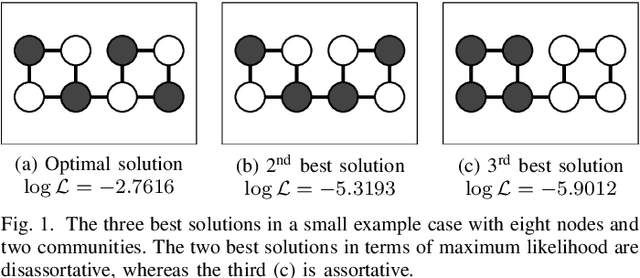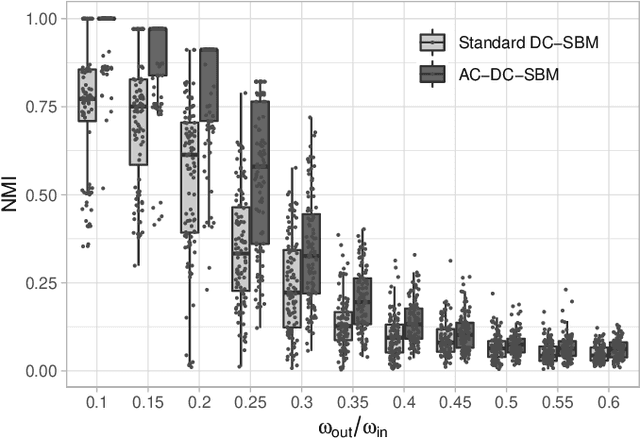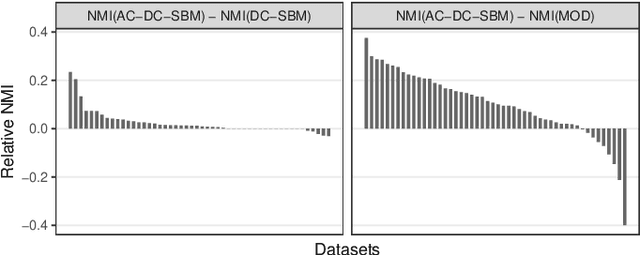Assortative-Constrained Stochastic Block Models
Paper and Code
Apr 21, 2020



Stochastic block models (SBMs) are often used to find assortative community structures in networks, such that the probability of connections within communities is higher than in between communities. However, classic SBMs are not limited to assortative structures. In this study, we discuss the implications of this model-inherent indifference towards assortativity or disassortativity, and show that this characteristic can lead to undesirable outcomes for networks which are presupposedy assortative but which contain a reduced amount of information. To circumvent this issue, we introduce a constrained SBM that imposes strong assortativity constraints, along with efficient algorithmic approaches to solve it. These constraints significantly boost community recovery capabilities in regimes that are close to the information-theoretic threshold. They also permit to identify structurally-different communities in networks representing cerebral-cortex activity regions.
 Add to Chrome
Add to Chrome Add to Firefox
Add to Firefox Add to Edge
Add to Edge